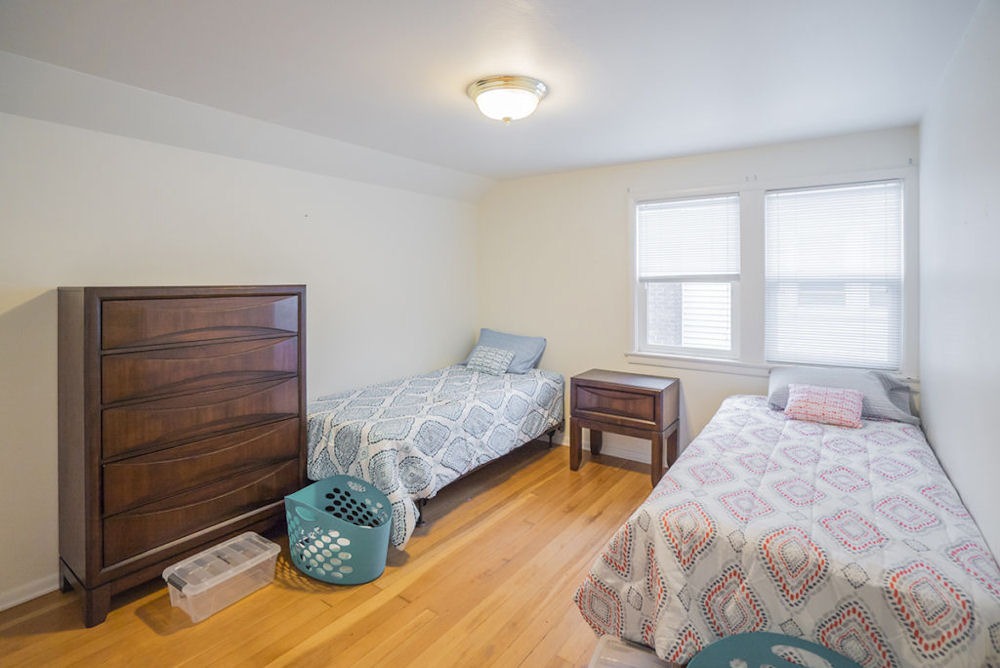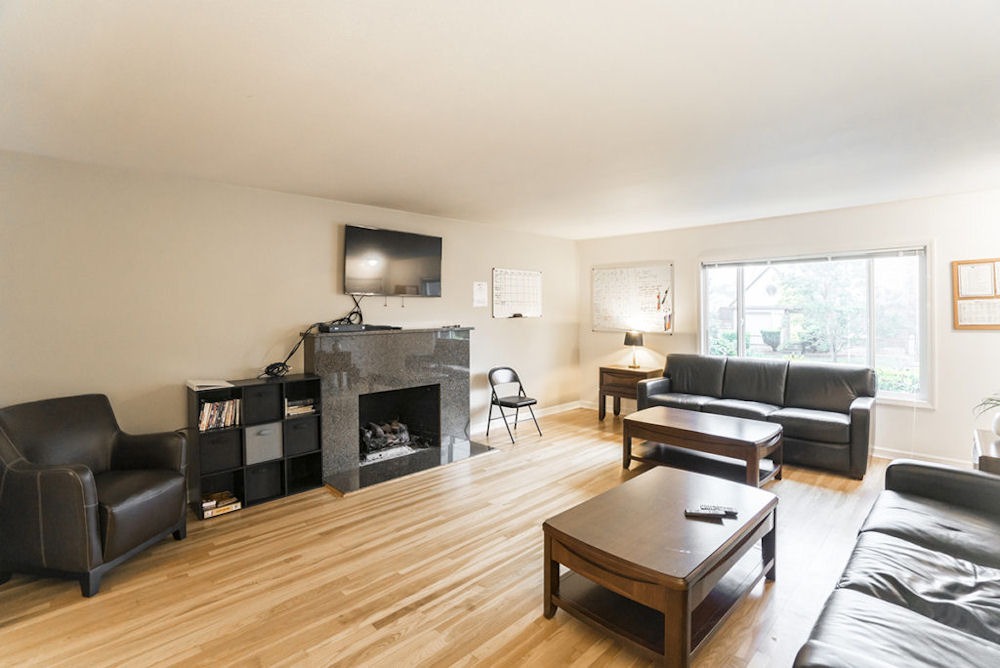30-Day Rehab Program
Substance abuse is a difficult road to travel. It can be challenging to understand your treatment needs as it pertains to addiction. This is why, at Bayview Recovery, we offer 30-day rehabs for those suffering from substance use disorder. There is no one-size-fits-all method for addiction treatment. Some individuals struggle with severe forms of addiction and require a more intensive approach; others may only need a 30-day rehab program for addiction. Treatment programs all depend on the individual and their unique needs. At Bayview, we aim to treat each of our patients on an individualized basis to give them the best shot at long-term success.

Our 30-day rehab program is an intensive, structured treatment plan for individuals needing a drug or alcohol rehab program in WA. This program provides medical support, therapy, counseling, and skills training in a tightly-knit schedule for approximately one month. It’s designed to help people cope with the physical and psychological grips of substance abuse, and begin the path to recovery. Treatment typically involves a combination of individual counseling, group therapy, educational workshops, and holistic therapies, with the ultimate goal of providing patients with the tools they need to maintain long-term sobriety.

A 30-day rehab program is an intensive form of treatment for drug and alcohol addiction, typically involving several stages of therapy. It begins with detoxification, where patients rid their bodies of harmful substances, under medical supervision to manage withdrawal symptoms. After detox, patients engage in individual and group therapy sessions. They do this to understand the root causes of their addiction, develop coping mechanisms, and build a supportive community. Educational workshops about addiction and recovery are often included.
The program also emphasizes the importance of healthy lifestyle habits such as a balanced diet, regular physical activity, and adequate sleep. Weekly progress assessments help tailor the program to individual needs. Upon completion, patients typically transition to our less intensive forms of treatment, like our outpatient rehab program in Tacoma, WA, or support groups; these go a long way in helping individuals maintain long-term sobriety.
The 30-day rehab program often represents the initial stage in the continuum of care for substance addiction treatment. It provides a structured environment for detoxification, the start of therapy, and the establishment of a recovery routine.
This intensive phase is designed to equip individuals with the tools necessary to begin their journey towards sobriety and recovery. After the initial process, individuals may progress to longer-term treatment or outpatient care. It is worth noting that this all depends on their individual progress and needs.
Who Benefits from the Length of a 30-Day Program?
A 30-day program for addiction recovery can provide significant benefits for individuals struggling with substance dependence. These individuals are given the chance to break free from their destructive patterns in a supportive, structured environment; supportive recovery environments allow individuals to regain control over their lives. Family members also benefit, as they can see their loved ones making positive strides toward sobriety.
What Should Somebody Expect in a 30-Day Rehab?
During a 30-day rehab program, an individual can expect a structured environment aimed at breaking the cycle of addiction. The journey typically begins with a medical detoxification process, followed by therapy sessions to address the underlying causes of the addiction. These therapy sessions often include individual counseling, group meetings, and workshops focused on skills-building. Other holistic activities such as yoga, meditation, and art therapy may also be incorporated to foster overall well-being. It’s important to note that the experience is designed to offer tools and strategies for maintaining sobriety after leaving the program.
What Happens After 30-Day Rehab?
After a 30-day rehab, individuals typically transition into an aftercare or continuing care program. This phase is critical as it helps in maintaining the gains made during rehab and preventing relapse. Aftercare can involve individual therapy, group counseling, self-help meetings like Alcoholics Anonymous or Narcotics Anonymous, and sober living housing. The goal is to support the individual in their journey towards long-term recovery. Helping individuals navigate challenges and establish a healthier lifestyle is of utmost importance.
What Factors Should Be Considered Before Attending a 30-Day Rehab?
Before deciding to attend a 30-day rehabilitation program, several factors should be evaluated. The foremost of all factors is understanding the severity and history of the substance use problem; this step is crucial, as it directly impacts the choice of program duration and intensity. Additionally, logistical concerns such as work commitments, family obligations, and financial considerations must be addressed. Lastly, the program’s treatment approach should align with the individual’s needs and preferences. Each approach should offer a combination of medical, therapeutic, and holistic strategies to promote sustainable recovery.
How Expensive is a 30-Day Rehab?
The cost of a 30-day rehab program can vary greatly depending on numerous factors. These include the type of treatment, location of the facility, and whether the program is inpatient or outpatient. On average, you might expect to pay anywhere from $2,000 to $25,000 for a 30-day program. However, it’s important to note that many insurance companies cover some, if not all, of the costs of rehab. Some facilities offer sliding scale fees or payment plans for those who need financial assistance. It’s also worth considering that the costs of addiction, both monetary and personal, can far outweigh the cost of rehab in the long run.
There are other factors that may affect the cost of a 30-day rehab program. These include the amenities offered and any additional services or therapies included in the program. For example, a rehab facility with high-end accommodations and specialized therapies may have a higher cost than a bare-bones program. Additionally, the length of stay can also impact the overall cost, with longer programs typically being more expensive.
Is 30-Day Rehab More Expensive than 60 Day Rehab?
As previously mentioned, the cost of rehab treatment varies greatly depending on factors. A shorter 30-day rehab program might seem less expensive when looking at the base price alone; this isn’t always the case. Per day, 60-day programs often cost less than 30-day programs because of the extended duration. However, the total cost of a 60-day program will usually be higher than a 30-day program simply due to the longer stay. It’s crucial to consider not just the cost, but also the effectiveness and the comprehensive care provided by the program.
Does Insurance Cover 30-Day Rehab?
In many instances, drug rehab insurance coverage helps with the cost of 30-day rehab programs as part of their mental health and substance use disorder coverage. This is due in part to legislation like the Affordable Care Act and the Mental Health Parity and Addiction Equity Act; these require insurers to provide coverage for these types of services at levels comparable to their coverage for physical health issues. However, the extent of the coverage can vary greatly between specific plans and insurance providers. It’s imperative to check an insurance policy or consult an insurance provider to understand the specifics of your coverage.
What Kind of Therapies Are Included in a 30-Day Rehab?
A 30-day rehab typically encompasses a variety of therapeutic approaches to support recovery from substance abuse. It usually commences with cognitive-behavioral therapy (CBT), aiding patients in identifying and challenging detrimental thought patterns. Other therapies may include dialectical behavioral therapy and other kinds of individual therapy. There’s also group and family therapy, fostering a supportive community; family therapy, to mend strained relationships between family members and loved ones. Specific therapies can vary based on the individual’s unique needs and the facility’s treatment approach.
Cognitive behavioral therapy (CBT) for addiction is a therapy that helps individuals understand the behavioral patterns that lead to addiction. By identifying these unhealthy thought patterns, individuals can learn to replace them with healthier, positive thoughts and behaviors. This type of therapy can be instrumental in preventing relapses. It does this by equipping individuals with the tools to cope with stressful situations that might trigger substance use.
Dialectical behavioral therapy (DBT) is a type of cognitive-behavioral therapy that was originally developed to treat individuals struggling with addiction. DBT aims to cultivate skills related to emotional regulation, distress tolerance, interpersonal effectiveness, and mindfulness. The primary goal is to help individuals build a life of sobriety and stability.
Individual therapy for addiction treatment is a crucial component of comprehensive recovery programs. It involves one-on-one sessions between the therapist and the patient; the goal is to uncover the root causes of addiction and develop personalized strategies to overcome it. This therapeutic approach allows for deep exploration of personal issues, traumas, and triggers that might have contributed to substance use.
Family therapy for addiction is a therapeutic approach that encompasses the entire family in the treatment process, acknowledging the interconnected nature of familial relationships. This method recognizes that addiction does not solely affect the individual grappling with substance abuse, but also has a profound impact on their relatives. In these therapy sessions, family members can express their feelings, learn about addiction, and develop healthy communication skills. The goal of family therapy for addiction is to mend and strengthen family relationships.
Our intensive trauma therapy program in Tacoma, WA, is a therapeutic approach that addresses the connection between trauma and addictive behaviors. It recognizes that substance abuse is often a coping mechanism for underlying traumatic experiences. This approach uses various techniques to help individuals understand and heal from their traumatic experiences.
Get The Help You Need Today at Bayview Recovery in Tacoma, Washington
If you or a loved one is grappling with addiction, there’s no need to face it alone – help is available. At Bayview Recovery in Tacoma, Washington, we offer a comprehensive 30-day rehab program designed to provide the support, guidance, and tools necessary to navigate the path to recovery. Our dedicated team of professionals is committed not only to treating the symptoms of addiction but also to addressing the underlying causes. If you or a loved one are interested in finding out more, you can contact us here.




